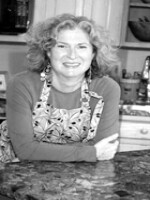JACKI LYDEN, host:
You're listening to WEEKEND EDITION, from NPR News.
Three hundred years ago, Thomas Twinning opened the first tea shop in London. The shop is still standing, and a tenth generation Twinning is still in the tea business.
Americans regularly brewed Twinning's tea for a while in the 1700's, but then, in 1773, the British government passed the Tea Act, a measure designed to give an advantage to the British East India Company.
Merchants in Boston decided to have a tea party by dumping a load of British tea in to the harbor. Since then, Americans have pretty much put tea off the boil and on the back burner. But that may be changing, as WEEKEND EDITION'S food essayist, Bonny Wolf, explains.
BONNY WOLF reporting:
It seems that Americans are ready to let bygones be bygones.
When news of the Boston Tea Party got back to England, King George supposedly responded, So they threw their tea in the harbor. Let them drink coffee. And they did, for about 200 years.
Tea was something to have when you were sick or at a Chinese restaurant. Pouring boiling water over a teabag did not produce a drink to be savored. But last year, Americans drank more than 50 billion servings of tea, and marketing tealeaf readers say this will be tea's best year ever in America.
I knew things had changed when I went to a neighborhood Chinese restaurant with my husband and 20-year-old son. The waiter asked if we'd like a pot of tea. My husband said, Sure. My son said, What kind of tea?
What kind of tea?
It turns out there are about 3,000 variations. And here's the amazing thing: all tea comes from the same plant. All of it. Green, black, white, oolong, hundred-year-old Pooair(ph) tea, teas that bloom like flowers in hot water, tea that is picked by monkeys on dangerous mountain cliffs.
The white-flowered evergreen Camellia sinensis is the source of all tea. The differences are in the processing. Herbal teas, by the way, aren't teas at all, but infusions made from leaves and flowers of other plants.
American tea-meisters now travel the world seeking the best-nurtured, hand-harvested, pesticide-free leaves of the tea plant. Teas are discussed like fine wines. Cooks use teas as a rub for meats and a poaching liquid for pears. So what gives?
Well, the tea industry has not been shy about promoting studies contending that tea provides remedies for a broad spectrum of what ails you. But as any veteran British tea drinker will tell you, tea appeals to the spirit, as well as the flesh.
Sharing a pot of tea with a friend is a far more tranquil retreat than a coffee break, even in Boston.
LYDEN: For brewing directions and recipes using tea, go to npr.org. Transcript provided by NPR, Copyright NPR.
NPR transcripts are created on a rush deadline by an NPR contractor. This text may not be in its final form and may be updated or revised in the future. Accuracy and availability may vary. The authoritative record of NPR’s programming is the audio record.





